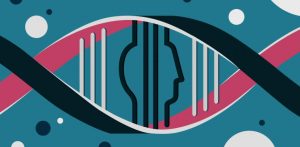
Researchers at the Simons Foundation have discovered that mutations in ‘junk’ DNA can contribute to the development of autism. This is the first study to establish a functional link between these mutations and autism. The study analyzed the genomes of 1,790 individuals with autism and their unaffected family members, focusing on noncoding regions of the genome, often referred to as ‘junk’ DNA. It was found that the number of autism cases linked to noncoding mutations was similar to those linked to mutations that disable gene function.
The study marks the first evidence of non-inherited, noncoding mutations causing any complex human disease or disorder. The implications of this research extend beyond autism, providing insights into how noncoding mutations contribute to diseases like cancer and heart disease. Only a small percentage of the human genome consists of protein-coding genes, with the remaining 98% playing a regulatory role. Mutations in protein-coding regions account for a maximum of 30% of autism cases without a family history. Therefore, identifying mutations in noncoding regions is crucial for a comprehensive understanding of autism.
To analyze the effects of noncoding mutations, the researchers used a machine learning model trained to predict the impact of specific sequences on gene expression. This model introduced a new approach to genetic studies, enabling the investigation of rare or previously unobserved genetic mutations. The Simons Simplex Collection, a repository of genetic data, was utilized for this analysis. The collection consists of whole genomes from nearly 2,000 quartets, each comprising a child with autism, an unaffected sibling, and their unaffected parents.
The study found that noncoding mutations in children with autism alter gene regulation, particularly affecting genes associated with neuron migration and development in the brain. These findings align with the understanding of how autism likely manifests in the brain. The research conducted by the Simons Foundation has the potential to improve the diagnosis and treatment of autism, as well as provide valuable insights into other complex human diseases and disorders.
Story Source:
Materials provided by Simons Foundation. Original written by Thomas Sumner. Note: Content may be edited for style and length.
